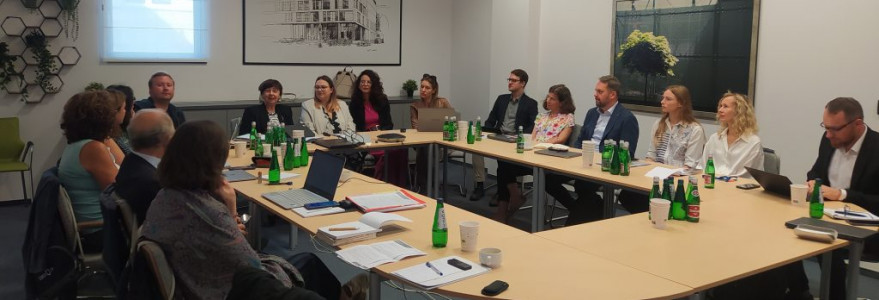The University of Warsaw is coordinating an international project concerning the creation of a sustainable selenium-enriched functional food chain – PATHFOOD. The project is being implemented under the Horizon Europe programme. On 12th–13th September, a project kick-off meeting took place at the UW’s Biological and Chemical Research Centre.
Selenium is an important nutrient. It is found naturally in nuts, meat and cereal grains. The element plays a key role in many biological processes essential for human health, including strengthening the immune system and helping the body fight against infections (bacterial and viral). It is also crucial for the proper functioning of the thyroid gland.
Public health and climate neutrality
PATHFOOD – Creating a Sustainable Functional Food Chain: A Pathway to EU Climate Neutrality and Improved Health is the title of an international consortium project involving the University of Warsaw, the Autonomous University of Barcelona (Universitat Autònoma de Barcelona; UAB), the National Research Council – Institute for Biological Systems (Consiglio Nazionale delle Ricerche – L’Istituto per i Sistemi Biologici; CNR – ISB) and the Italian consultancy REDINN SRL. The project is coordinated by Prof. Ewa Bulska, the Director of the Biological and Chemical Research Centre (CNBCh) at the UW. Apart from the scientists from the CNBCh, researchers from the UW’s Faculty of Biology will also be involved in the research.
“In the project, we will focus on enriching plants with selenium, improving the bioavailability of this element and developing modern techniques of food cultivation and processing, which minimise the impact on the environment,” says Dr Magdalena Michalska-Kacymirow from the UW’s Biological and Chemical Research Centre, project manager. “We aim to develop innovative selenium-enriched products, including cold-pressed cabbage juice,” she adds.
Not only research
In the PATHFOOD project, besides research, legal and social issues are also essential. Thanks to international cooperation, the project will enable the exchange of knowledge and technology transfer between institutions, and contribute to raising research standards.
“Together with our European partners, we will work on various aspects. We will also think about, e.g. improving communications, involving young researchers in the project and ensuring equality between different parties,” explains Prof. Ewa Bulska, the project coordinator.
The project consortium also intends to cooperate with agri-food business partners, so that the research results can be applicable in everyday life.
On 12th–13th September, the kick-off meeting of the PATHDOOD project took place at the UW’s Centre for Biological and Chemical Research. Among the participants were scientists from the University of Warsaw and researchers from Italy and Spain.



